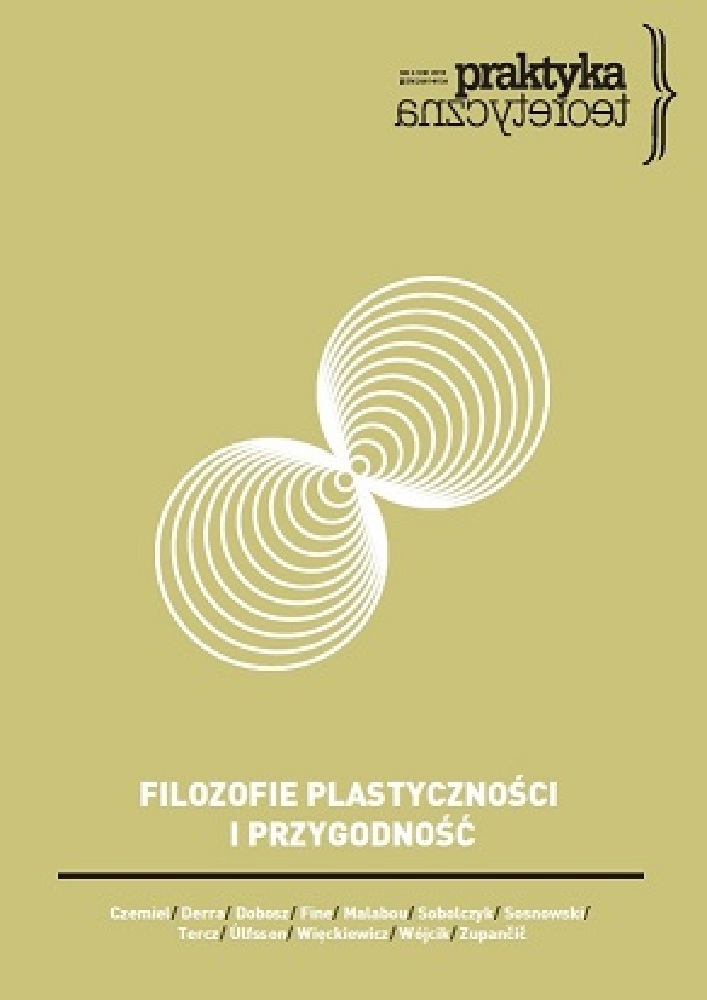Abstract
Introduction to the translation of Cordelia Fine‟s article “Explaining, or Sustaining, the Status Quo? The Potentially Self-Fulfilling Effects of „Hardwired‟ Accounts of Sex Differences.”References
Barad, Karen. 1996. „Meeting the universe halfway: realism and social constructivism without contradiction”. W Feminism, Science and the Philosophy of Science, red. L. H. Nelson I J. Nelson. London: Kluwer.
Fine Cordelia. 2012. „Explaining, or Sustaining, the Status Quo? The Potentially Self-Fulfilling Effects of »Hardwired« Accounts of Sex Differences”. Neuroethics 5: 285–294.
Fine, Cordelia. 2007. „Will Working Mothers‟ Brains Explode? The Popular New Genre of Neurosexism”. Neuroethics 1.1: 69–72.
Fine, Cordelia. 2013. „Is there neurosexism in functional neuroimaging investigations on sex differences?” Neuroethics 6: 369–409.
Hoffman Ginger A., Bluhm R. 2016. „Neurosexism and Neurofeminism”. Philosophy Compass 11/11: 716–729.
Kaiser, Anelis. 2012. „Re-conceptualizing »Sex« and »Gender« in the human brain”. Zeitschrift für Psychologie 220: 130–136.
Rose Nikolas i Joelle M. Abi-Rached. 2013. Neuro: The New Brain Sciences and the Management of the Mind. Princeton: Princeton University Press.
Schmitz Sigrid, Höppner Grit. 2014. „Neurofeminism and Feminist Neurosciences: a Critical Review of Contemporary Brain Research”. Frontiers in Human Neuroscience vol. 8: 1–10.
Schmitz, Sigrid. 2012. „The neurotechnological cerebral subject: persistence of implicit and explicit gender norms in a network of change”. Neuroethics 5, 261–274.
Vidal, Catherine. 2012. „The Sexed Brain: Between Science and Ideology”. Neuroethics 5: 295–303.
License
“Theoretical Practice” seeks to put into practice the idea of open access to knowledge and broadening the domain of the commons. It serves the development of science, thinking and critical reflection. The journal is published in open-access mode under the CC-BY-NC-SA 4.0 license (detail available here: http://creativecommons.org/licenses/by-nc-sa/4.0/). Articles published in the journal may be freely distributed, stored, printed and utilized for academic and teaching purposes without restrictions.
They should not be, however, used for any commercial purposes or be reconstructed into derivative creations. Access to the journal may not be limited or offered for a fee by any third party.
Prospective authors are obliged to fill in, sign and send back the publishing contract compliant with the CC licencing. [PL.pdf, PL.doc, EN.pdf,EN.doc].
According to this contract, authors grant the journal a non-exclusive right to publish their work under the creative commons license (CC-BY-NC-SA 4.0) without any financial obligation on both sides of the contract.
Before submission authors should make sure that derivative materials they use are not protected by copyright preventing their non-commercial publication. Authors are responsible for any respective copyright violations.
